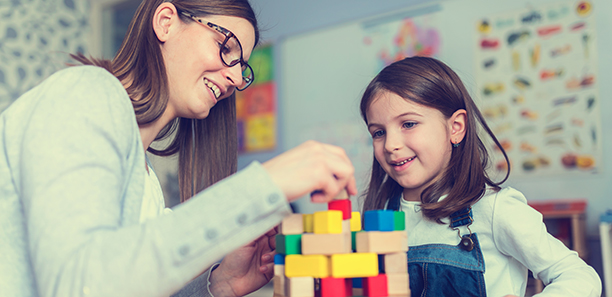
The human brain is born ready to learn. In the first five years of a child’s life, they develop social and intellectual skills that they will take with them as they grow. Early childhood educators play a major part in this development, which is why we constantly strive to equip our future educators with the latest, proven methods of play-based learning.
In this article, we’re discussing how children grow foundations with the help of highly skilled early childhood educators.
The First Five Years of a Child’s Life
The developmental changes that occur in the first five years of a child’s life include their physical health, mental alertness, emotional understanding, social skills and a willingness to learn. These years are particularly important for the development of a child’s brain with the first three years considered the most critical in shaping the physical architecture of the brain.
Children’s first experiences provide the base for brain development — something they will carry with them throughout their lives. Children depend on their parents, family members and other caregivers to develop crucial skills, become independent, and lead a healthy and successful life. They grow and learn easier in nurturing, safe environments where they are protected against neglect and extreme stress.
Play-Based Learning in Early Education
Early childhood education aims to support parents and children from infancy through to age 8. This includes the major transition from home to school which can be stressful for children. Research has shown that focusing on play-based learning can be beneficial for children in the first five years of their lives.
Play-based learning focuses on developing intellectual skills, thinking and motivation by exposing children to people, objects and representations. They can explore different materials and environments to further develop their cognition, imagination and social skills.
The main benefits of play-based learning include:
- Encouraging language skills and vocabulary growth
- Supporting pre-literacy skills through music, rhyme, repetition and sound recognition
- Developing social and emotional skills through connections with other children and adults
- Releasing stress through calm, therapeutic play where the brain can process information and recharge
- Fostering creativity and imagination that will help them develop problem-solving skills
Learning through play results in a brain that has increased flexibility and potential for learning in later stages of the child’s life. This is considered by experts to be an essential tool in early childhood education.
Becoming an Early Childhood Educator
If you’re passionate about supporting children through their early stages of development, you can enrol in a course at TAFE Gippsland. Both the Diploma of Early Childhood Education & Care and Certificate III in Early Childhood Education & Care are fantastic tools for strengthening your skills and starting a career in this thriving industry. Both courses are eligible for the Vicotrian Government-subsidised training with the Free TAFE for Priority Courses initiative.
Begin supporting the next generation of learners by speaking to a team member from TAFE Gippsland. You can call us on 1300 133 717 or contact us online.